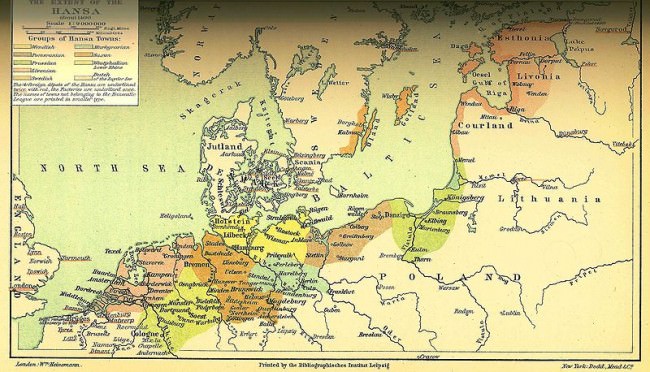By Ulf Christian Ewert and Marco Sunder
Paper given at the 9th European Historical Economics Society Conference (2011)

Abstract: That Hanseatic merchants of the late Middle Ages relied on multiple kinship and friendship networks to handle their business is well established. The majority of these merchants had settled down and operated their trade from their hometowns. They committed to reciprocal exchange with relatives and friends at distant markets, often without formal contracts, and their trading networks were based on reputation, trust and culture. Little is known, however, on the emergence of this Hanseatic trading system in the high Middle Ages, a period characterised by a significant migration into the Baltic region and the foundation of numerous towns alongside the Baltic sea’s southern shore. Against the backdrop of severe data limitations, we develop – and analyse the predictions of – a simple agent-based simulation model of Hanseatic trade. We ask how the network pattern of Hanseatic trade could have emerged and developed before the turn of the 13th century, in which way the unfolding of network-based trade might have contributed to the economic development of the Baltic region in this period and whether development paths other than that of an emerging network organisation would have been viable solutions as well.
For the rest, see:
http://www.medievalists.net/2014/02/17/trading-networks-monopoly-economic-development-medieval-northern-europe-agent-based-simulation-early-hanseatic-trade/
No comments:
Post a Comment